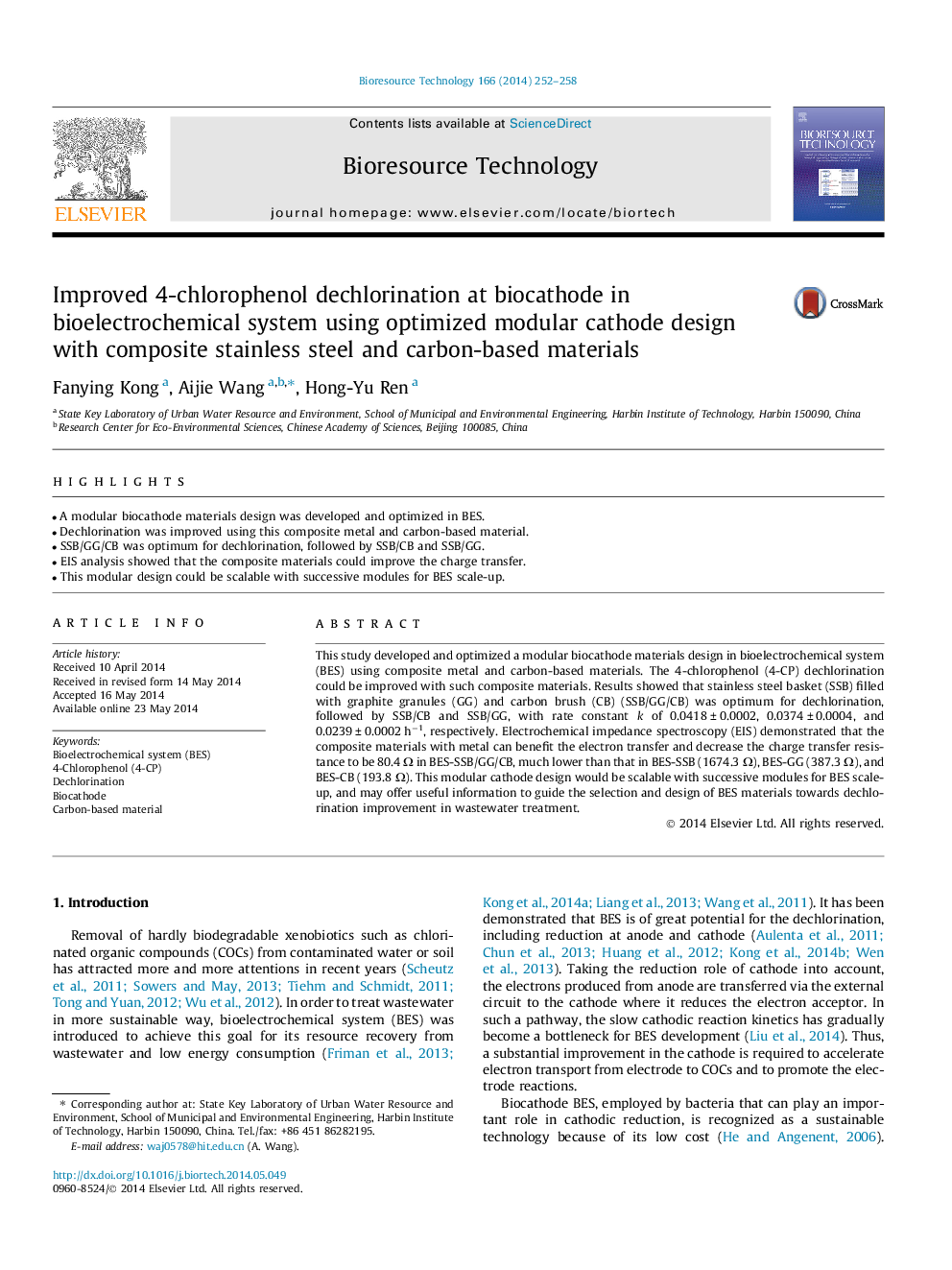| Article ID | Journal | Published Year | Pages | File Type |
|---|---|---|---|---|
| 7076703 | Bioresource Technology | 2014 | 7 Pages |
Abstract
This study developed and optimized a modular biocathode materials design in bioelectrochemical system (BES) using composite metal and carbon-based materials. The 4-chlorophenol (4-CP) dechlorination could be improved with such composite materials. Results showed that stainless steel basket (SSB) filled with graphite granules (GG) and carbon brush (CB) (SSB/GG/CB) was optimum for dechlorination, followed by SSB/CB and SSB/GG, with rate constant k of 0.0418 ± 0.0002, 0.0374 ± 0.0004, and 0.0239 ± 0.0002 hâ1, respectively. Electrochemical impedance spectroscopy (EIS) demonstrated that the composite materials with metal can benefit the electron transfer and decrease the charge transfer resistance to be 80.4 Ω in BES-SSB/GG/CB, much lower than that in BES-SSB (1674.3 Ω), BES-GG (387.3 Ω), and BES-CB (193.8 Ω). This modular cathode design would be scalable with successive modules for BES scale-up, and may offer useful information to guide the selection and design of BES materials towards dechlorination improvement in wastewater treatment.
Keywords
Related Topics
Physical Sciences and Engineering
Chemical Engineering
Process Chemistry and Technology
Authors
Fanying Kong, Aijie Wang, Hong-Yu Ren,
